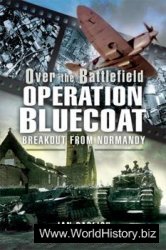Although no one knows for sure why the Mary Rose sank, it's believed that water came in through the open gun ports, possibly due to a sudden gust of wind. The great number and weight of the guns
On the ship meant that the ports were lower down and it's possible they were not kept shut.
And Francis had no intention of bowing down to his English counterpart. Ambitious, stubborn and proud, the two men were too similar for any attempts at friendship to work. After the first meeting was concluded, the two kings engaged in a week of oneupmanship and competition. It was a week dedicated to flaunting power and status; the 'cloth of gold' referred to the ludicrously lavish tents. Henry was determined to prove his athleticism and joined the competitions, but Francis had a similar idea. Henry had to suffer the humiliation of losing to the French king in a wrestling match, and it is hardly surprising that the only result of the meeting was a greater sense of hatred. Instead, Henry turned his diplomatic attentions to Charles V.
Henry's alliance with the Habsburgs had continued throughout the years of peace, despite one or two hiccups involving marriage arrangements. Crucially, Charles and Henry shared a mutual loathing of Martin Luther and King Francis. His hatred of the French king meant that war was inevitable and Henry eagerly awaited the perfect opportunity to mount another attack. When hostilities resumed in 1521, Henry declared that England was now allied with the Holy Roman Emperor and signed the Treaty of Windsor in 1522 to make 'The Great Enterprise' official. At this point in his plans, Henry could not afford a full-scale invasion and an attack on Picardy failed due to a lack of communication and, perhaps more importantly, trust.
Henry's ambition to conquer France and claim the throne for himself was hamstrung by the fact that he couldn't afford it. He had previously helped to bankroll Ferdinand and Maximilian and he had seen them make peace without him. Henry was scared that Charles might repeat his father's trick and, for his part, Charles had no particular interest in seeing Henry on the French throne. Their mutual distrust would only grow.
Trust wasn't the only problem. In an echo of 1513, Henry was distracted by the constant threat from the north. Whenever he began a campaign in France, the Scottish forces would threaten attack, forcing him to wage a war on two fronts. Henry was enraged and infuriated but he would not give up. He mounted another attack in 1523 to support
The rebelling Duke of Bourbon, but Charles sent no help and the English troops were forced to retreat.
The line was finally crossed when Charles captured Francis at the Battle of Pavia in 1525 and showed no interest in sharing his spoils with the English king. Henry decided that the time had come for a full-scale invasion. With nowhere near enough money, Henry and Cardinal Wolsey tried to create the 'Amicable Grant' tax to pay for the attack, but opposition proved so fierce that Henry was forced to scrap his plans and publicly blame Wolsey. The humiliation of backpedalling helped Henry to realise that he was not going to get what he wanted. He signed the Treaty of the More with Francis's mother, Louise of Savoy, and turned his attention towards his family.
Not surprisingly, Charles's rejection rankled Henry. The Holy Roman Emperor's increased presence in Italy once again caused the panicking Pope Clement VII to create the League of Cognac,




 World History
World History









